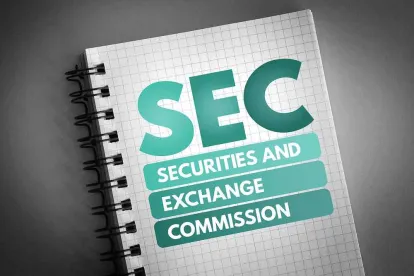Raising money for your bootstrapped startup from wherever or whomever is willing to give it often seems like an attractive path for founders. And given our current unprecedented global circumstances, it might even seem necessary for you to keep the lights on. But you can’t take money from just anyone – under U.S. Securities and Exchange Commission (SEC) rules, it’s critical that you consider whether each person or entity that invests in your company is an “accredited investor.”
We are frequently asked about these rules by entrepreneurs, particularly those looking to raise capital for the first time. In the overwhelming majority of cases, companies tend to stick to accredited investors, even if it means turning down checks from friends and family.
What is an “Accredited Investor”?
At a very high level, federal securities laws require that all offers and sales of securities must either (1) go through the time-consuming and expensive process of registering with the SEC or (2) qualify for an exemption from registration.[i] Every time you offer or sell shares of your company’s stock, there either has to be an exemption available for you to rely on or you have to jump through the SEC’s registration hurdles. Since public registration is not practical for early stage companies, virtually every time you issue stock, you should be looking for an exemption to apply.
The primary intent behind the SEC’s registration requirement is to protect investors from fraud by forcing the registering company to provide enough information about its business, the securities that it is offering, as well as the overall offering itself, so that investors are better equipped to evaluate the risks that may be associated with their investment and so that they ultimately make an informed decision. However, the depth and breadth of the SEC’s registration requirements are extreme and expensive for bootstrapped, venture capital-seeking startup companies, forcing the vast majority of small businesses looking to raise money to instead rely exclusively on one of many exemptions from registration.
In the 1980s, the SEC created Regulation D under the Securities Act of 1933 in order to provide small businesses with a number of exemptions from the registration requirements, allowing such companies to offer and sell their securities to “accredited investors” without having to register the offering with the SEC.[ii]
The term “accredited investor” is defined in Rule 501(a) of Regulation D and has been relied on for decades.[iii] But just recently, in December 2020, the SEC updated the definition to expand the categories of knowledgeable, expert individuals and entities who may invest without triggering the rigorous registration requirements of the Securities Act.[iv] The 2020 amendment is helpful to venture capital funds but doesn’t significantly change the questions a startup founder will ask of its investors.
Under the definition, an individual person (as opposed to an entity) is considered an accredited investor if they are:
-
a person who has individual net worth, or joint net worth with the person’s spouse, that exceeds $1 million at the time of the purchase of your company’s securities, excluding the value of the investor’s primary residence; or
-
a person with income exceeding $200,000 in each of the two most recent years or joint income with a spouse (or, under the 2020 amendment, a spousal equivalent such as a domestic partner) exceeding $300,000 for those years and a reasonable expectation of the same income level in the current year; or
-
any director, executive officer, or general partner of the issuer of the securities being offered or sold, or any director, executive officer, or general partner of a general partner of that issuer (many founders will fall into this category, which applies only to investment in their own company); or
-
under the 2020 amendment, a person holding a FINRA Series 7, Series 65 or Series 82 license; or
-
under the 2020 amendment, a person who is a “knowledgeable employee” of a private fund and is making an investment in that fund.
So, if you’re a startup founder taking money from individuals, focus on parts (a), (b), and (c) above when determining whether those individuals are accredited. However, part (d) is of great potential benefit to venture funds because it allows their personnel who are actively involved in investment decisions (i.e. beyond performing mere administrative tasks) to invest in the fund itself and thereby benefit from the results of those decisions.
The rule also provides that an entity that is an investor, like an LLC, a partnership, or other form of business or charitable organization, may be an accredited investor as well. Most typically, entities qualify as accredited investors by:
-
having $5,000,000 or more in assets (for example, a venture fund); or
-
by being controlled solely by individuals who are themselves accredited investors (for example, a personal LLC created by a wealthy individual).
There are other ways entities can be considered accredited, but they are very unusual and should be discussed with your attorney.
So, Why Is Fundraising From “Accredited Investors” Important?
By creating the definitions we’ve just described, the SEC has pre-determined that accredited investors have the necessary financial sophistication, financial strength, and investment experience to fully understand and evaluate the risks associated with investing in an emerging growth company, without the need for the disclosures that are required for offerings to the general public – and that pesky registration process we mentioned above. [v]
Most exemptions from registration that startups typically rely on require you to offer and sell shares of your company’s stock only to individuals or entities who qualify as accredited investors.
Some of those exemptions do allow you to sell shares of your Company’s stock to a limited number of non-accredited investors – if and only if you then provide each non-accredited investor with certain information that is similar to what is required under a public registration statement. For example, depending on the overall size of the offering, you might be required to provide audited financial statements. Even if you provide the requisite disclosures, there is a heightened risk with non-accredited investors of a rescission right – that is, investors being able to take their money back! There are also in most cases more onerous state-level requirements, or blue sky laws, when accepting money from non-accredited investors.
One additional exception is for financing conducted under Regulation Crowdfunding, which is designed to accommodate non-accredited investors subject to certain limits. Crowdfunding has its own set of complex rules which you should carefully evaluate with counsel.
Due to the obstacles described above, most startup companies find that raising money from non-accredited investors often results in significantly increased legal and accounting costs, which can be as high (and even sometimes higher) than the total amount of money you are set to raise from those investors. Accordingly, most of our startup clients accept funding only from accredited investors.
[i] https://www.sec.gov/page/federal-securities-laws?auHash=B8gdTzu6DrpJNvsGlS1-JY1LnXDZQqS-JgJAgaSXimg
[ii] https://www.sec.gov/fast-answers/answers-regdhtm.html
[iv] https://www.sec.gov/news/press-release/2020-191; https://www.sec.gov/rules/final/2020/33-10824.pdf





 />i
/>i

